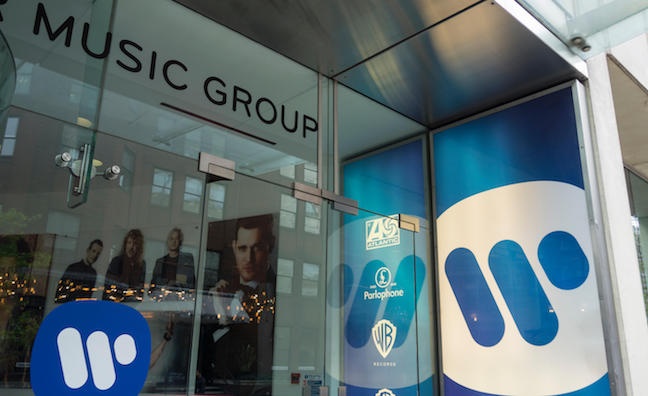The recorded music industry has been busier than ever as it coped with the Covid-19 pandemic during the last six months.
But now there are some signs of normality again in the industry as staff at record companies return to their offices. It follows the opening up of other sectors such as music retail, though the live business remains on shutdown because of the social distancing regulations.
In the latest issue of Music Week, we talk to HR execs at Warner Music and Sony Music to see how labels are managing the return to the office from home working for those that want it. Staff can expect new routines, layouts and hygiene measures in place.
BPI & Brit Awards chief executive Geoff Taylor said the trade body is in “regular dialogue” with labels to help manage the return to HQs.
“They are being sensible and cautious about it, in the sense of only bringing in part of their teams on a gradual basis and considering whether or not staff want to use public transport for coming into work,” he said. “There are some very sensible plans being put in place to get people back in the office, but also respecting people's individual view and showing some flexibility.”
AIM CEO Paul Pacifico said employers need to be cautious and support individual team members.
“The independent community has shown itself to be innovative, creative and nimble under lockdown – making the most of every opportunity and pushing ahead rather than holding back wherever possible,” said Paul Pacifico. “Flexible working and digital-first delivery are very much in our nature and we see the evidence that many independent music businesses within the AIM community have adapted well to the very difficult circumstances of the last few months.”
AIM even staged its award ceremony as a virtual event.
Pacifico added: “I think whilst there is pressure to get people back into offices at the moment, the jury is still out – especially on risk factors relating to race, on which AIM continues to press government for more information. The data suggests that Covid-19 remains a very real concern to many people and we recommend every employer implements an approach that creates an inclusive and flexible environment to accommodate the needs of everyone in their teams.”
The industry responded very well to this challenge, it works surprisingly well under these new circumstances
Geoff Taylor
The BPI teamed with AIM, other bodies and government on guidance for production during Covid, which has enabled artists and labels to film performances for the Hyundai Mercury Prize TV broadcast next week.
“In terms of advice we are giving our community, we led the working group with government to develop the back to work guidance for recording studios, rehearsal spaces and music video shoots,” added Pacifico. “Our liaison with Public Health England, the Health and Safety Executive and other specialist bodies has given us real insight into the risks and appropriate mitigations in regards to working safely with Covid-19, but whatever the guidance as to best practice, so much is determined by the individual risk factors and personal circumstances of each member of any team.”
Both AIM and the BPI are continuing to operate remotely.
“From an AIM point of view, we are able to work remotely at full capacity,” said Pacifico. “The inclusive organisational culture, allied to a fully cloud-based administration, enables us to be effective whilst working remotely for the foreseeable future. We have actually given up our permanent office in Covent Garden and currently intend to remain in our virtual office until at least the end of this calendar year.”
“Working remotely has worked very well for the BPI,” added Taylor. “We been putting out a huge amount of [online] training, innovation and insight events, our international missions continued virtually. We will be coming back into the office, but with a with a hybrid approach with more people perhaps working from home than was the case beforehand.”
While there are concerns about the impact of long-term isolation on mental health, both AIM and the BPI are confident that nothing has been lost by working from home.
“I am mindful that one of the key reasons to congregate in an office is to share knowledge, experiences and information that help deepen social bonds in teams and seamless working,” said Pacifico. “We work consciously to overcome the barriers of working apart through regular check-ins and informal as well as formal team meetings. I think we are likely to meet socially and spend time together as a team to make sure our interpersonal relationships stay strong before feeling the need to commit to a new office and travel to work on a daily basis.”
“I think the labels have been very positive about how well it has worked for most of them working remotely, and they still feel that the level of creativity has been high,” said Taylor. “Clearly artists are finding it harder to interact with each other, and not being able to be in the studio for a while has had an impact and obviously for promotional reasons releases have been delayed.
“But, overall, the industry has found that it's still able to be highly creative under these new circumstances. We feel that the industry responded very well to this challenge and that, actually, it works surprisingly well under these new circumstances.”
To read the exclusive interviews with the major label HR execs, subscribers can click here.
* To make sure you can access Music Week wherever you are, subscribe to our digital issue by clicking here.









